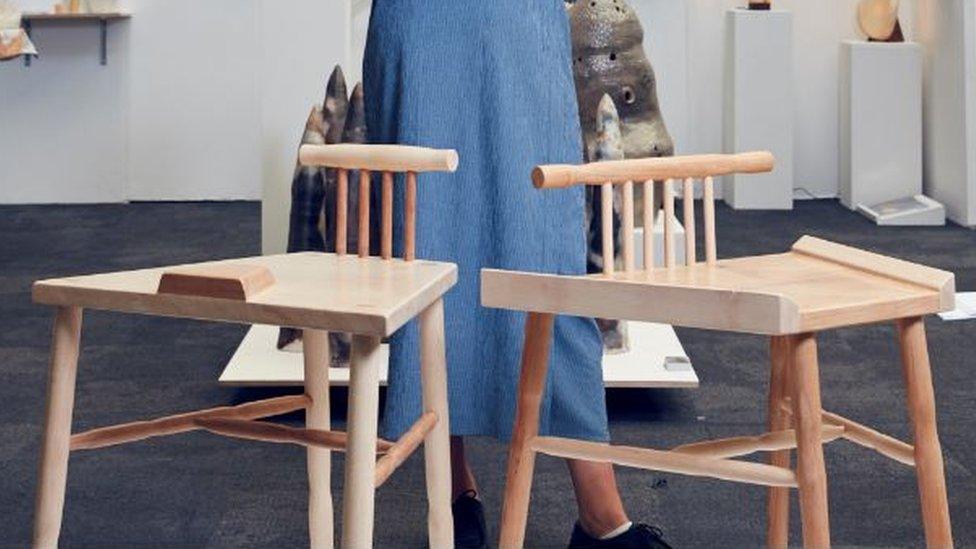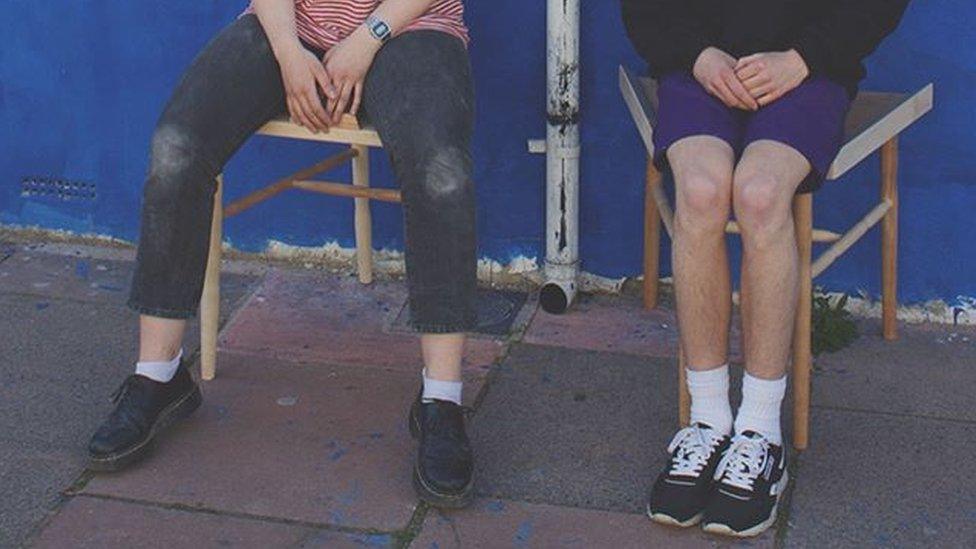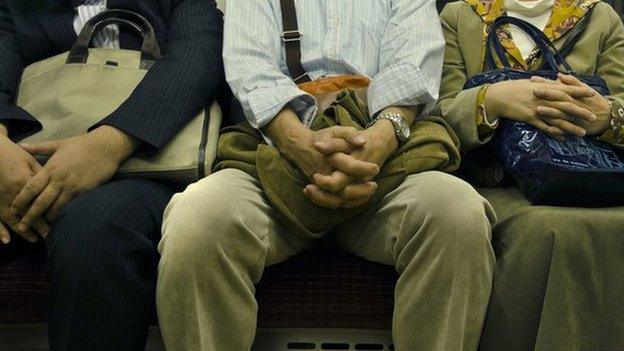Anti-manspreading chair designer receives 'backlash'
- Published

The women's chair (left) encourages the occupant to spread their legs while the men's chair (right) forces the legs together
A student has faced an "unpleasant backlash" over her award-winning chair designed to stop "manspreading".
Laila Laurel, from Norwich, won a major award for the seat which is crafted so that men sit with their legs closed.
She said the "concept" chair was inspired by her experiences of men "infringing on my space in public".
But since the award, she said: "I have received a lot of explicit messages from men who seem to be under the impression that I hate all men."
The University of Brighton student said this "couldn't be further from the truth frankly".
The term "manspreading" refers to the practice of someone sitting with their knees so far apart it encroaches on the personal space of people next to them.

Manspreading is the practice of sitting with the knees so far apart it invades others' personal space
Ms Laurel's designs won the Belmond Award at New Designers in London, a major showcase of work from universities across the UK.
The 23-year-old said the reaction from those who used the chairs was "brilliant and interesting".
She also made a second chair intended for women which encourages sitters to push their legs apart.
"I don't take myself too seriously, because I really want my work to be both important and thought provoking, whilst also being engaging and funny.
"I think humour is a really interesting tool in order to tackle social issues."

Laila Laurel said was inspired by her own experiences of 'manspreading' and others women's stories of sexism
She said she was also inspired by the 'The Everyday Sexism Project, external,' founded by Laura Bates, which collects women's daily experiences of gender inequality.
Ms Laurel's prize includes a £1,000 bursary and the chance to design a product for a hotel and leisure company.
She said the chairs were "more of a concept and not necessarily a functional design", but said she was encouraged that the judges "like the feminist slant on design".
You may also be interested in:

The judges said Ms Laurel's chairs were imaginative and cleverly presented
- Published6 April 2019

- Published27 August 2015
